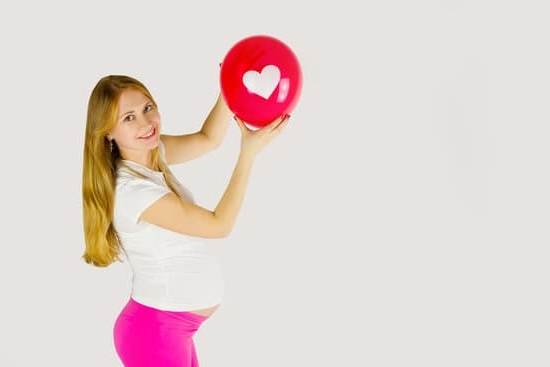When do you feel pregnancy symptoms? This is a common question that many expectant mothers ask as they eagerly anticipate the signs of a new life growing within them. Understanding the timeline of pregnancy symptoms can help alleviate some of the uncertainties and prepare women for the changes their bodies will undergo during this transformative time.
During the early stages of pregnancy, subtle changes in the body may start to become apparent. These early signs, such as heightened sense of smell, food aversions, and frequent urination, can be indicators of pregnancy even before a missed period. As the body adjusts to the presence of a developing embryo, hormonal fluctuations can lead to symptoms like nausea, fatigue, and mood swings that are often associated with early pregnancy.
In addition to these common symptoms, physical changes like breast tenderness, bloating, and cravings may also manifest as pregnancy progresses. These signs serve as reminders of the miraculous journey taking place inside a woman’s body. While some women may experience these symptoms earlier than others, it is essential to recognize that every pregnancy is unique and individual experiences may vary.
Early Signs
Pregnancy symptoms can vary from woman to woman, and some may experience them earlier than others. However, there are some early signs that many women may notice when they become pregnant. Here are some changes in the body you may observe during the early stages of pregnancy:
- Implantation bleeding: Some women may experience light spotting or bleeding when the fertilized egg attaches to the uterine lining.
- Missed period: One of the most common early signs of pregnancy is a missed period, which can prompt many women to take a pregnancy test.
- Increased urination: Hormonal changes can lead to more frequent trips to the bathroom even in the early weeks of pregnancy.
These early signs are often subtle and may be attributed to other factors, so it’s important to pay attention to your body and consider taking a pregnancy test if you suspect you might be pregnant.
In addition to these early signs, some women may also notice changes in their breasts such as tenderness or swelling. Hormonal shifts can impact breast tissue, causing sensitivity or discomfort. This breast tenderness is often one of the first noticeable symptoms for many women.
Additionally, feelings of fatigue or exhaustion can set in as early as a week after conception due to hormonal changes and increased metabolic demands on the body. Mood swings, caused by fluctuating hormone levels, are another common early sign that many women experience when they first become pregnant.
Common Symptoms
During pregnancy, experiencing a range of symptoms is common as your body goes through significant changes to accommodate the growing baby. Nausea, fatigue, and mood swings are some of the most frequently reported symptoms by pregnant individuals. Nausea, often referred to as morning sickness, can actually occur at any time of day. This queasiness may be triggered by certain smells or foods and tends to peak during the first trimester but can last throughout pregnancy for some women.
Fatigue is another prevalent symptom that many pregnant women experience, particularly in the early stages of pregnancy. Your body is working hard to support the development of the baby, which can leave you feeling tired and drained. Hormonal changes, increased blood flow, and emotional adjustments can all contribute to feelings of exhaustion during pregnancy. It is important to listen to your body and rest when needed.
Mood swings are also a common occurrence during pregnancy due to fluctuating hormone levels. You may find yourself feeling more emotional than usual or easily irritable.
These mood swings are normal and should not cause undue concern, but it’s essential to take care of your mental health during this time. Engaging in self-care activities such as relaxation techniques, exercise, or seeking support from loved ones can help you navigate these emotional ups and downs when do you feel pregnancy symptoms.
Physical Changes
During pregnancy, women experience a multitude of physical changes that can sometimes be the first signs of being pregnant. One common early symptom is breast tenderness, where the breasts may feel sore, tingly, or fuller than usual. This tenderness is often due to hormonal changes in the body as it prepares for pregnancy and breastfeeding. Some women may notice this symptom as early as one to two weeks after conception.
Another physical change that many pregnant women experience is bloating. This can be attributed to an increase in progesterone levels which relax the muscles in the digestive tract, leading to slower digestion and bloating. Bloating can start as early as the first few weeks of pregnancy and continue throughout due to the expanding uterus putting pressure on the digestive organs.
Cravings are also a common physical change during pregnancy. Many women report having intense cravings for specific foods, combinations of foods, or unusual food pairings. While the exact cause of cravings is unknown, they are believed to be influenced by hormonal changes and nutritional needs during pregnancy. Cravings can start as early as the first trimester and vary from person to person in terms of intensity and specific food preferences.
| Physical Change | Timing |
|---|---|
| Breast Tenderness | One to two weeks after conception |
| Bloating | First few weeks of pregnancy |
| Cravings | As early as the first trimester |
Timing
Pregnancy is a unique and exciting journey filled with various physical and emotional changes. One of the common questions expectant mothers have is, “When do you feel pregnancy symptoms?” It’s essential to understand that every woman’s experience is different, but there are general timelines for when these symptoms typically start.
For many women, pregnancy symptoms can start as early as one to two weeks after conception. These early signs may include fatigue, breast tenderness, frequent urination, and mood swings. However, some women may not notice any noticeable symptoms until a few weeks later. It’s crucial to listen to your body and pay attention to any changes it may be going through.
One of the earliest and most common signs that indicate pregnancy is a missed period. This usually prompts women to take a pregnancy test. If the test comes back positive, it’s important to schedule an appointment with your healthcare provider to begin prenatal care. Understanding when pregnancy symptoms typically start can help you prepare both physically and emotionally for the beautiful journey ahead.
| Timing of Symptoms | Common Symptoms |
|---|---|
| 1-2 weeks after conception | Fatigue, breast tenderness |
| 4-6 weeks after conception | Nausea, frequent urination |
| 6-8 weeks after conception | Mood swings, food cravings |
First Trimester
During the first trimester of pregnancy, your body undergoes numerous changes as it prepares to support the growth and development of your baby. This period, which spans from conception to around week 12, is crucial for both you and your baby. It’s important to understand what to expect during the first trimester so you can better manage any symptoms and monitor your health.
Physical Changes
One of the earliest physical changes you may notice during the first trimester is breast tenderness or swelling. This is due to hormonal fluctuations as your body prepares for milk production. Additionally, many women experience bloating and an increase in vaginal discharge. Some may also start craving certain foods or develop aversions to others due to changes in taste and smell.
Common Symptoms
Nausea, often referred to as morning sickness, is a common symptom experienced by many women during the first trimester. This can range from mild queasiness to more severe vomiting. Fatigue is also prevalent during this time as your body works hard to support your growing baby.
Mood swings are another common symptom caused by hormonal fluctuations that can lead to emotional ups and downs. These symptoms can vary in intensity from woman to woman, with some experiencing them more severely than others.
Timing of Symptoms
Pregnancy symptoms typically start around 6-8 weeks after conception, but this can vary from person to person. Some women may notice early signs even before they miss their period, while others may not experience any symptoms until later in the first trimester. It’s essential to listen to your body and seek medical advice if you have any concerns about when do you feel pregnancy symptoms or their severity during this crucial time in your pregnancy journey.
Second Trimester
During the second trimester of pregnancy, many women experience a shift in their symptoms and how their body feels as the pregnancy progresses. This trimester, usually spanning weeks 13 to 26, is often referred to as the “honeymoon phase” of pregnancy. Women typically start to feel better during this time after the initial challenges of the first trimester.
Changes in Symptoms
As the second trimester begins, many women find relief from early pregnancy symptoms like nausea and fatigue. Instead, they may start to notice new symptoms such as increased appetite, weight gain, and changes in skin pigmentation like linea nigra or melasma. Some women also experience new physical discomforts like back pain or round ligament pain as the baby continues to grow.
Body Changes
During the second trimester, women’s bodies undergo significant changes to accommodate the growing baby. The uterus expands considerably, causing a visible baby bump to appear around the halfway mark of this trimester. Women may also notice increased breast size and changes in their skin and hair due to hormonal fluctuations. Along with these external changes, internal organs are also adjusting to make room for the developing fetus.
Mood Swings and Emotional Changes
While some women find their mood stabilizing during the second trimester due to hormonal shifts settling down, others may still experience mood swings or emotional changes. Pregnancy hormones can continue to affect emotions throughout all three trimesters. It is important for expectant mothers to communicate any concerns with their healthcare provider if they are feeling overwhelmed or experiencing persistent feelings of sadness or anxiety during this time.
Overall, while many women enjoy a reprieve from some of the more challenging symptoms of early pregnancy during the second trimester, it is essential not to overlook any new discomforts that may arise during this period. Staying informed about what is normal during this stage of pregnancy can help alleviate worries and ensure a healthier experience for both mother and baby.
Third Trimester
By the time you reach the third trimester of your pregnancy, you are likely feeling a mix of excitement and anticipation as you prepare for the arrival of your little one. This stage, which typically begins around week 28 and lasts until the birth of your baby, comes with its own set of unique symptoms and challenges. Here are some key points to consider as you navigate through the final stretch of your pregnancy:
- Physical Changes: During the third trimester, your body will undergo significant changes as it prepares for childbirth. You may experience increased back pain, swelling in your extremities, frequent urination, and shortness of breath as your baby grows larger and puts pressure on your organs.
- Braxton Hicks Contractions: As you move closer to your due date, you may start to experience Braxton Hicks contractions, also known as false labor contractions. These contractions can feel like tightening or hardening of the abdomen but are generally milder and more irregular than true labor contractions.
- Nesting Instinct: Many women find themselves overcome with a sudden surge of energy and motivation to prepare for the arrival of their baby during the third trimester. This nesting instinct often involves organizing the nursery, washing baby clothes, and stocking up on essentials.
As you approach the end of your pregnancy journey, it is essential to stay in close communication with your healthcare provider and attend regular prenatal appointments to monitor both your health and the progress of your baby. Remember that every pregnancy is unique, so it is important to discuss any concerns or unusual symptoms with your doctor.
By staying informed and taking care of yourself both physically and emotionally, you can better prepare for labor and delivery and look forward to welcoming your new bundle of joy into the world.
Conclusion
During pregnancy, it is crucial to pay attention to the signs and symptoms that your body may be experiencing. While every woman’s experience with pregnancy symptoms may vary, it is essential to monitor any changes and seek medical advice when necessary. By understanding the timeline of pregnancy symptoms and being aware of what to expect, you can better navigate through this unique journey.
One of the most common questions many women ask is, “When do you feel pregnancy symptoms?” Early signs such as fatigue, nausea, and mood swings can start as early as a few weeks after conception. These symptoms may continue throughout the first trimester and even into the second trimester for some women. It is important to listen to your body and take note of any unusual or persistent symptoms.
As your pregnancy progresses, physical changes like breast tenderness, bloating, and cravings may become more noticeable. While some discomforts are considered normal during pregnancy, it is always advisable to consult with your healthcare provider if you have any concerns. Regular check-ups and open communication with your doctor can help ensure a healthy pregnancy for both you and your baby. Remember, each pregnancy is unique, so trust your instincts and don’t hesitate to seek guidance when needed.
Frequently Asked Questions
How Early Can You Get Pregnancy Symptoms?
Pregnancy symptoms can vary from woman to woman, but they typically start appearing around 4-6 weeks after conception. Some early signs include nausea, fatigue, breast tenderness, and frequent urination.
What Symptoms Do You Have at 1 Week Pregnant?
At 1 week pregnant, it’s still very early in the pregnancy and most women may not even be aware that they have conceived yet. It is highly unlikely to experience any noticeable symptoms at this early stage of pregnancy.
How Soon Can You Know if You Are Pregnant?
Most home pregnancy tests can detect pregnancy as early as a missed period, which is usually around 2 weeks after conception. However, some sensitive tests claim to provide accurate results even before a missed period by detecting the pregnancy hormone hCG in urine.

Welcome to my fertility blog. This is a space where I will be sharing my experiences as I navigate through the world of fertility treatments, as well as provide information and resources about fertility and pregnancy.





